Recent Blog Posts
Reckless Driving Charges in an Illinois Bike Accident
 Illinois law says that bicyclists have as much of a right to drive on roadways that cars have. If they choose to ride on the road, they must follow all the same rules that motorists have to obey in their cars.
Illinois law says that bicyclists have as much of a right to drive on roadways that cars have. If they choose to ride on the road, they must follow all the same rules that motorists have to obey in their cars.
It is considered reckless driving if a motorist collides with a bicyclist because car drivers must be aware of bicyclists when approaching crosswalks. However, there are situations in which a collision between a bicyclist and a motorist could be the bicyclist’s fault.
Rules for Bicyclists Driving on Roadways
In 2018, Illinois law was modified to make it legal for bicyclists to drive on the shoulder of roadways. The riders would have to obey the rules of the road, use hand signals when turning, and if riding in a group, they must ride single file so as not to take up space on the road for cars.
What Are the Consequences to Driving without Insurance?
 It is mandatory in the state of Illinois to have car insurance for every automobile that is operated on public roads. Drivers without car insurance will be charged with a traffic violation as well as be charged with breaking Illinois’ Mandatory Insurance Law.
It is mandatory in the state of Illinois to have car insurance for every automobile that is operated on public roads. Drivers without car insurance will be charged with a traffic violation as well as be charged with breaking Illinois’ Mandatory Insurance Law.
The Illinois Law states that drivers should have vehicle liability for the amounts of at least:
- $25,000 for personal injury or death of one person in an accident.
- $50,000 for multiple persons injured or killed in an accident.
- $20,000 for property damage of another person.
Anyone who is caught driving without insurance - or if a driver without insurance causes an accident - will have their license plates suspended. They will also face one or two fines: a minimum of $500 for driving without insurance and a minimum of $1,000 for driving with suspended plates after already being charged with driving without insurance.
Setting off Fireworks in Illinois Is a Misdemeanor Crime
 One of the biggest ways to celebrate the Fourth of July is to light off and/or watch a fireworks display. However, if you were caught setting off fireworks in Illinois, you are most likely currently facing misdemeanor charges.
One of the biggest ways to celebrate the Fourth of July is to light off and/or watch a fireworks display. However, if you were caught setting off fireworks in Illinois, you are most likely currently facing misdemeanor charges.
Illinois is one of only six states in the country that have banned consumers from purchasing and lighting fireworks on their own. The crime is punishable by a Class A misdemeanor enforced by a fine of up to $2,500 and a prison term of one year.
What Is Acceptable in Illinois?
While larger fireworks are not legal for purchase in Illinois, those who want to celebrate on July 4th can legally buy novelty items. The American Pyrotechnics Association reported that Illinois residents can celebrate with sparklers, smoke machines, snappers, and party poppers among other items that are less likely to cause injury.
Items that are illegal in Illinois include, but are not limited to:
Does a DUI Conviction Result in Need for Ignition Interlock Device?
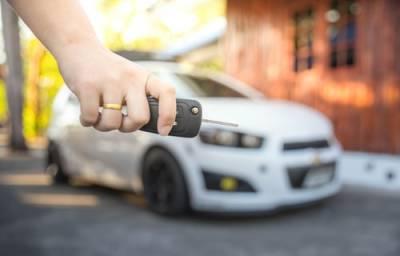 Every state has different rules when it comes to DUI convictions . There are punishments such as fines, jail time, and suspension of licenses after a conviction is made. In Illinois, first-time offenders - and subsequent offenses - are required to drive with a Breath Alcohol Ignition Interlock Device (BAIID).
Every state has different rules when it comes to DUI convictions . There are punishments such as fines, jail time, and suspension of licenses after a conviction is made. In Illinois, first-time offenders - and subsequent offenses - are required to drive with a Breath Alcohol Ignition Interlock Device (BAIID).
The purpose of a BAIID is to stop offenders from drinking and driving. The device is installed into the automobile and drivers will have to breathe into the tube to start their car. This is similar to a breathalyzer used during a traffic stop. If someone has a blood alcohol content (BAC) of over 0.025, the car will not turn on. Anything lower than 0.025 will allow the car to start without a problem.
In the past, DUI offenders would have someone else breath into their BAIID in order to start their vehicle. So, along with the device, a camera will also be installed into the car to capture images of the driver performing their breath test.
How Do Step-Parents Defend Against Child Abuse Allegations?
 Children living in a split-parent environment are more likely to be abused by a step-parent than a biological parent. However, it is not inevitable that a step-parent will abuse or neglect a child that is not theirs. Parents who are not living full-time with their children may be more protective and just want to know that their child is not suffering any domestic violence or neglect. If signs of possible abuse are detected, a parent can call the Illinois Department of Child and Family Services (DCFS) to start an investigation.
Children living in a split-parent environment are more likely to be abused by a step-parent than a biological parent. However, it is not inevitable that a step-parent will abuse or neglect a child that is not theirs. Parents who are not living full-time with their children may be more protective and just want to know that their child is not suffering any domestic violence or neglect. If signs of possible abuse are detected, a parent can call the Illinois Department of Child and Family Services (DCFS) to start an investigation.
According to Illinois law, a parent is required to report possible abuse when the evidence is present. The law also requires doctors, teachers, law enforcers, day care workers, and any other persons close to the child to report possible abuse so that the child can be protected. If the abuse is not reported, those who failed to do so can face Class A misdemeanor charges.
The Crime of Street Racing in Illinois
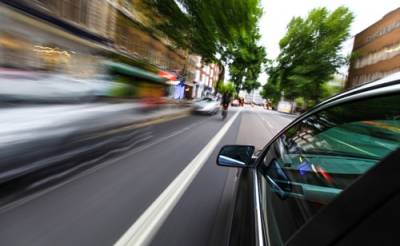 Street racing could be described as a symptom of “road rage” in that one driver speeds up to not allow another driver to overtake them, thus resulting in both vehicles traveling at a high rate of speed. There are other reasons people street race. Some just do it as a form of competition and entertainment. Whether for entertainment or due to road rage, street racing is considered reckless driving because it puts people’s lives in danger.
Street racing could be described as a symptom of “road rage” in that one driver speeds up to not allow another driver to overtake them, thus resulting in both vehicles traveling at a high rate of speed. There are other reasons people street race. Some just do it as a form of competition and entertainment. Whether for entertainment or due to road rage, street racing is considered reckless driving because it puts people’s lives in danger.
Both drivers of the vehicles caught in a street race are putting themselves in danger if the cars collide, but they also put other drivers and pedestrians in danger. There are other people on the road who may not be expecting two cars coming down the road at a high rate of speed.
What Is Street Racing?
According to Illinois law, street racing is defined as:
- Operation of two or more motor vehicles driving side by side while accelerating in an attempt to outdistance each other.
How to Avoid a Traffic Ticket for Following Too Closely
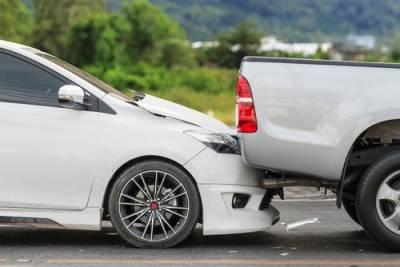 Keeping a safe distance away from a driver ahead of you is important because you cannot see what is in front of that driver. If the leading driver has to slam on their brakes for whatever reason and you are too close, that could result in a rear-end collision. That type of collision could lead to serious damage or injury depending on the speed of the vehicles.
Keeping a safe distance away from a driver ahead of you is important because you cannot see what is in front of that driver. If the leading driver has to slam on their brakes for whatever reason and you are too close, that could result in a rear-end collision. That type of collision could lead to serious damage or injury depending on the speed of the vehicles.
For this reason, following too closely is considered reckless driving and falls under the Illinois Reckless Driving Law. A violation of this law can result in a Class C misdemeanor conviction punishable by one year in prison and/or a $2,500 fine.
According to Illinois law, no driver should ever be following behind another vehicle too closely. Drivers need to keep in mind the traffic, conditions, and speed of the other vehicle and know that there is a risk of a collision.
To avoid a collision, slower drivers should travel in the right lane to allow faster drivers to pass on the left safely. If the road is only one lane, faster drivers are expected to adjust their speed to keep a reasonable amount of space between the two cars and then pass when it is safe.
The Impact of Felony Forgery Charges
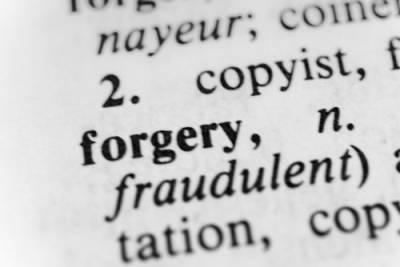 There are several types of deceptive practices that can be punishable as felony charges in Illinois. The most common deception that goes on today is forgery which is defined by Illinois law as:
There are several types of deceptive practices that can be punishable as felony charges in Illinois. The most common deception that goes on today is forgery which is defined by Illinois law as:
- Making or altering documents to defraud another person.
- Issuing or delivering altered documents.
- Possessing with intent to deliver altered documents.
- Unlawful usage of another person’s signature.
- Unlawful usage of another person’s PIN number as an electronic signature.
Forgery is a felony offense in most situations, but the worst punishment of this type of conviction is the damage that it does to one’s personal reputation.
If you are convicted of a forgery charge, others will change the way they see you and question your morals. People will begin to wonder when you are lying to manipulate a situation or if you are trying to harm another person for selfish reasons.
How to Fight Felony Charges for Vehicle Theft
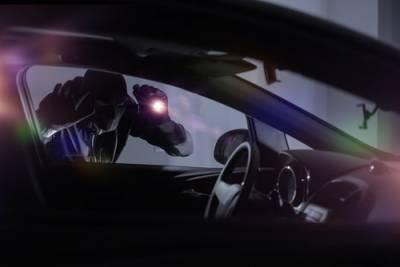 In the state of Illinois, there is no specific “grand theft auto” law. So when someone steals a car or other motor vehicle, it is included in Illinois’ general theft law. This means, if someone is caught in possession of a stolen vehicle, they will face felony charges and all the punishments that come with them.
In the state of Illinois, there is no specific “grand theft auto” law. So when someone steals a car or other motor vehicle, it is included in Illinois’ general theft law. This means, if someone is caught in possession of a stolen vehicle, they will face felony charges and all the punishments that come with them.
Defining Vehicular Theft
As stated above, the act of stealing a motor vehicle falls under the Illinois Theft Statute which includes several incriminating acts:
- Taking unauthorized control of another person’s property.
- Using deception to take control of another person’s property.
- Threatening the owner to take control of their property.
- Knowingly taking property that has already been stolen from another person.
In the cases of vehicular theft, the automobile is the property that cannot be taken control of. The exception is if the owner gives permission for the alleged thief to borrow the vehicle for an agreed upon period of time.
What Happens to a Minor After a DUI Charge?
 Even though the legal drinking age in the United States is 21 years old, underaged drinking happens all the time. Especially if the minors are not being given proper parental supervision. In Illinois, there is a zero tolerance for underage drinking and driving under the influence . The Illinois Zero Tolerance Law states that anyone under the age of 21 that is caught driving under the influence will lose their driving privileges.
Even though the legal drinking age in the United States is 21 years old, underaged drinking happens all the time. Especially if the minors are not being given proper parental supervision. In Illinois, there is a zero tolerance for underage drinking and driving under the influence . The Illinois Zero Tolerance Law states that anyone under the age of 21 that is caught driving under the influence will lose their driving privileges.
DUI vs. Zero Tolerance Penalties
A driver under the age of 21 who is pulled over for suspected DUI can be issued either a simple DUI charge or a Zero Tolerance charge or both. This decision is made solely by the officer who makes the traffic stop.
The officer makes his or her decision based on the results or refusal of the field sobriety test and the chemical test that is taken on site.
- According to Illinois law, if a person under the age of 21 is charged under the Zero Tolerance Law, they are punished by:







